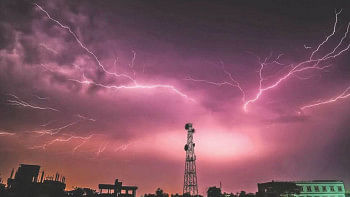Pakistan calls for dialogue to fight out terror
Pakistan's leader has pleaded for dialogue, not war, to fight terrorism in South Asia but told India not to push Islamabad too hard for action against extremists one month after the Mumbai attacks.
In an emotional speech delivered Saturday on the first anniversary of the assassination of former premier Benazir Bhutto, President Asif Ali Zardari -- her widower -- said Pakistan would fight the "cancer" of extremism.
Zardari's comments came as the United States, Russia and other nations tried to defuse tensions between Pakistan and India, which quickly escalated on Friday after officials here announced that troops had been moved to the border.
India has blamed the Mumbai attacks, which left 172 dead, on the banned Pakistan-based militant group Lashkar-e-Taiba (LeT), and accused Islamabad of not doing enough to clamp down on it -- something Zardari firmly rejected.
"Dialogue is our biggest arsenal," he told dignitaries gathered at the Bhutto family home to honour the slain opposition leader, who was killed on December 27 last year in a gun and suicide attack.
"We have non-state actors. Yes, they are forcing an agenda on us," the Pakistani leader said.
But on the subject of future action against such movements, he said in a direct remark to India: "We shall do it because we need it, not because you want it."
"This mettle has been tested many times. Please do not test it again... Allow us the freedom of democracy, allow us the freedom of choice," he said.
He welcomed US president-elect Barack Obama's plans for fighting terror in South Asia -- what he dubbed a "regional cure for this cancer" -- and said Islamabad was ready to play its part.
"We will cure it, we will solve it, we will correct it," Zardari said.
But he rejected the notion that conflict between the nuclear-armed neighbours could solve anything, saying: "We have lost our people -- we do not talk about war, we do not talk about vengeance."
India and Pakistan have fought three wars since independence from Britain in 1947, two of them over the disputed Kashmir region.
They came to the brink of a fourth war in late 2001 after an attack on India's parliament, which New Delhi also blamed on the LeT. Both sides deployed hundreds of thousands of troops but retreated after international mediation.
Senior Pakistani security and defence officials described last week's troop movements toward India -- and away from Afghanistan, where Islamabad is battling Taliban and al-Qaeda militants in the tribal areas -- as "limited".

 For all latest news, follow The Daily Star's Google News channel.
For all latest news, follow The Daily Star's Google News channel. 



Comments